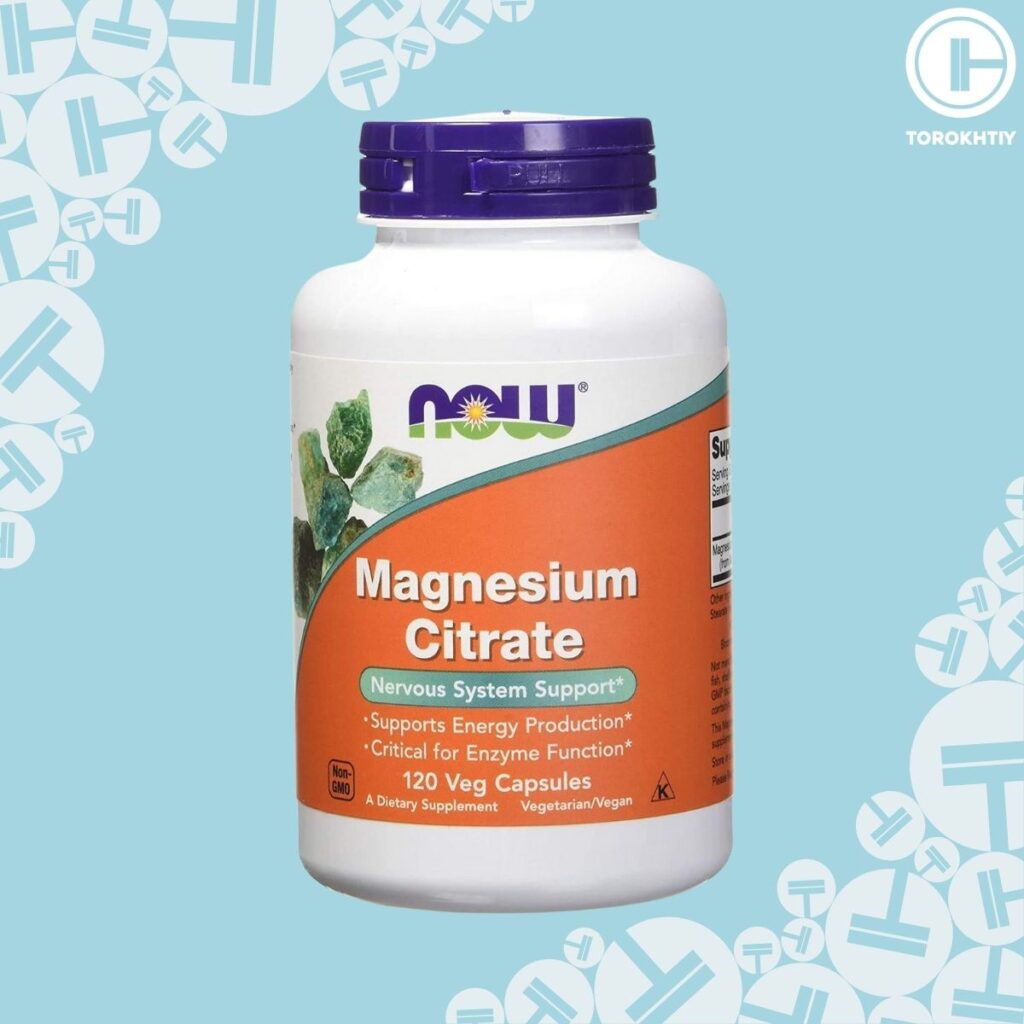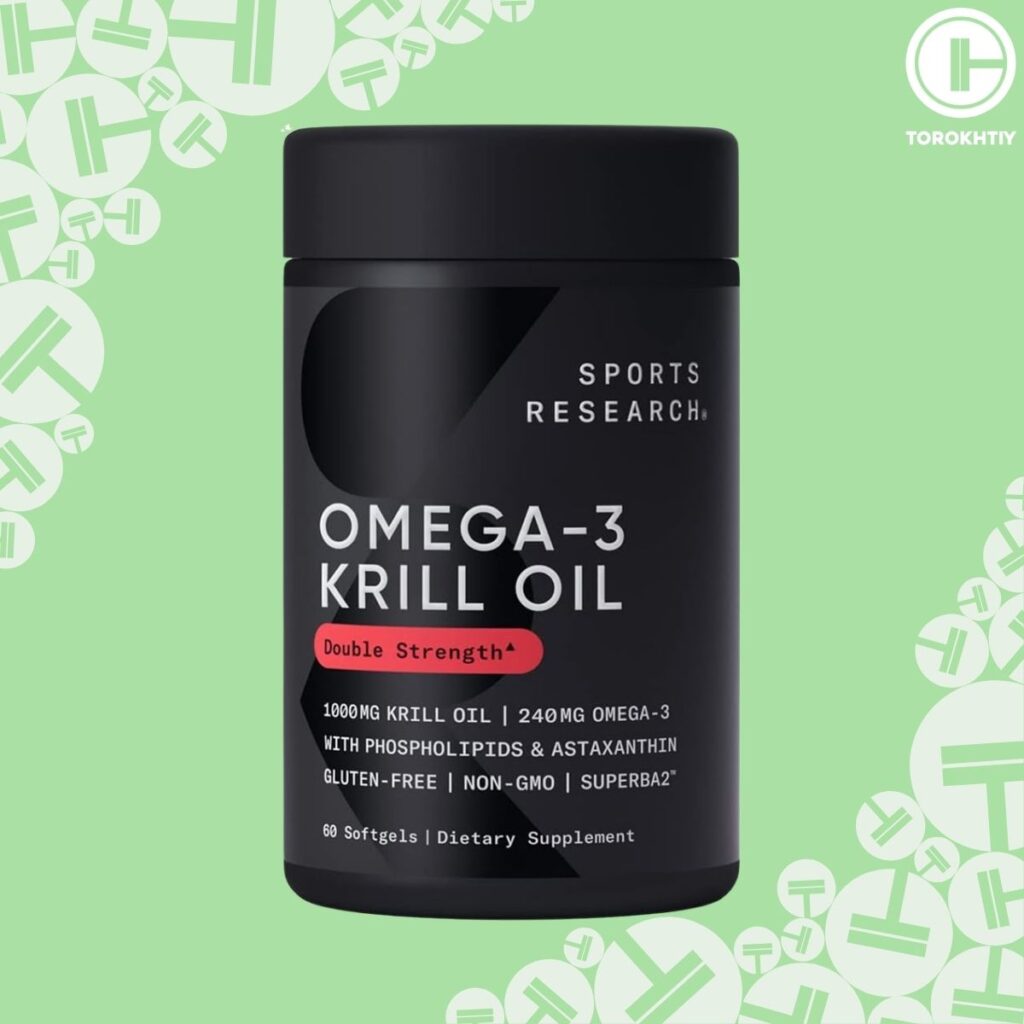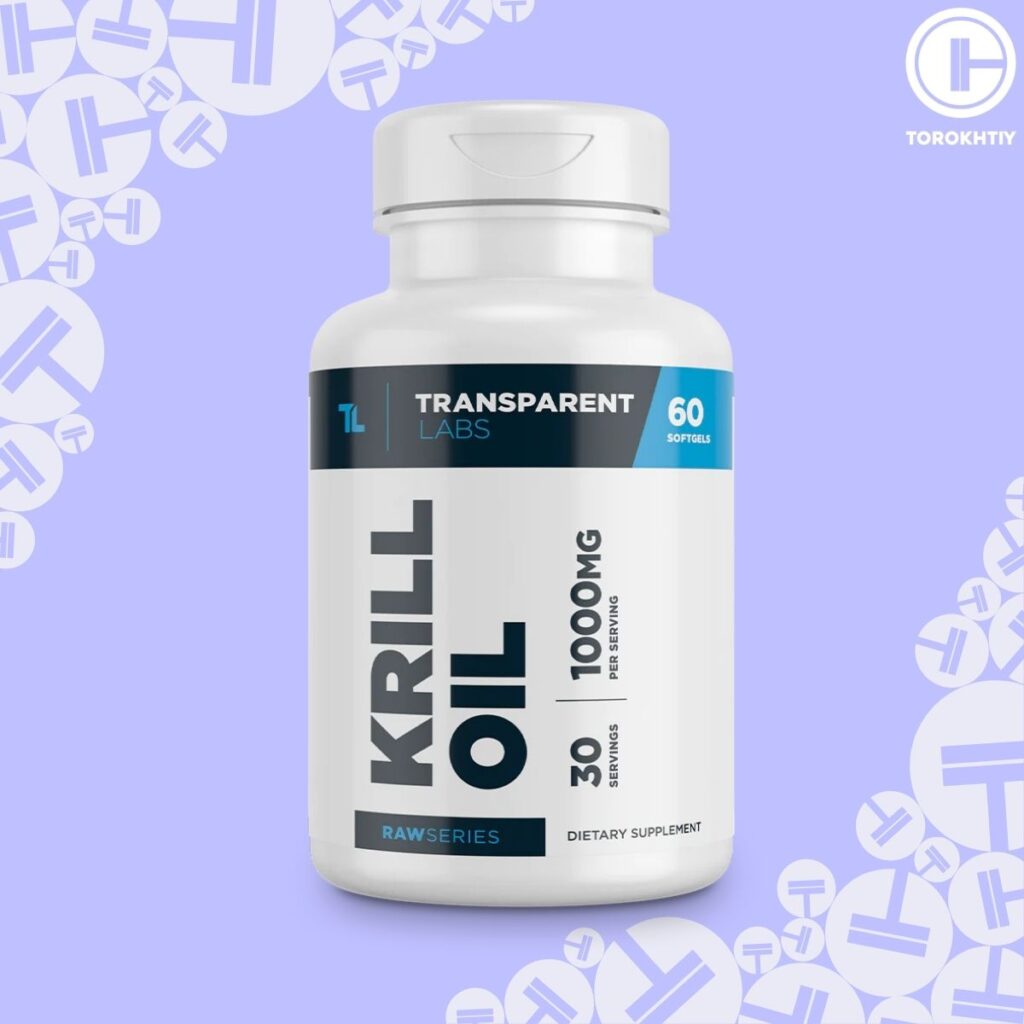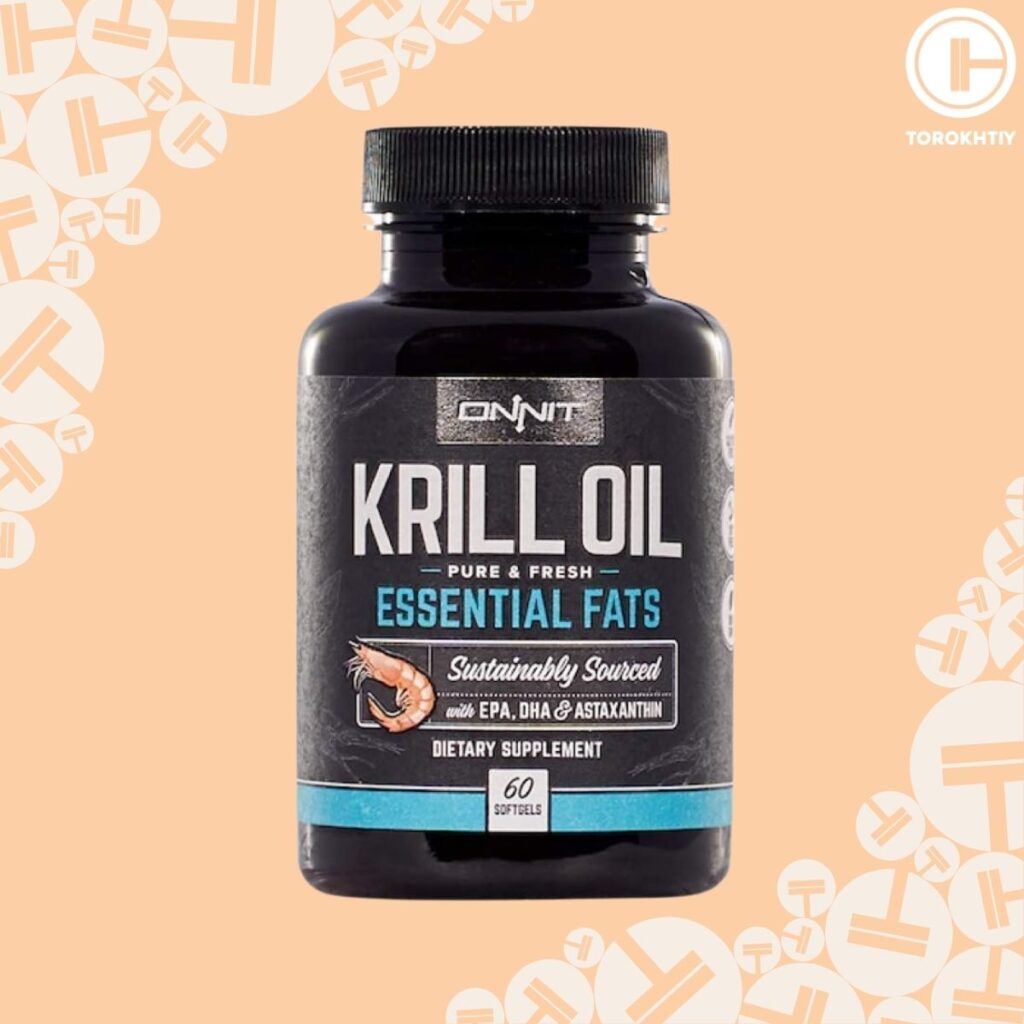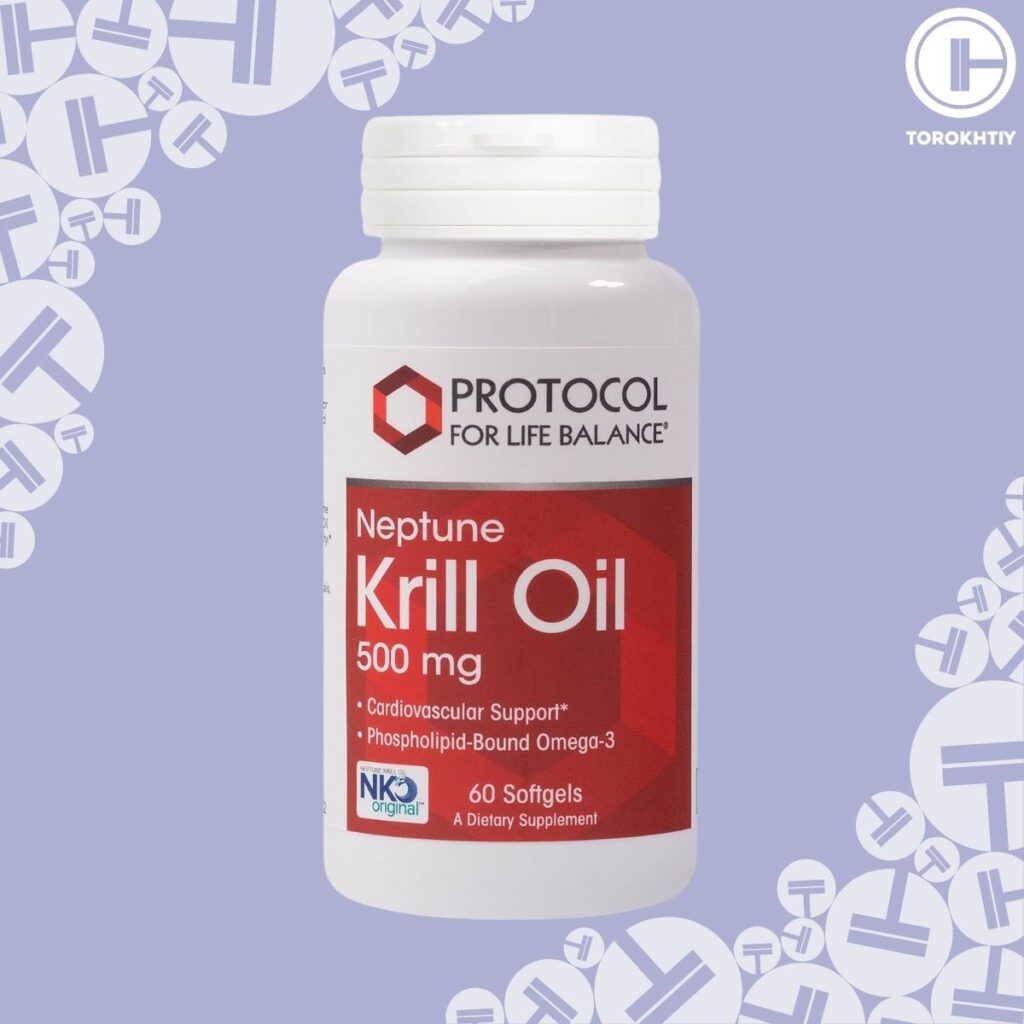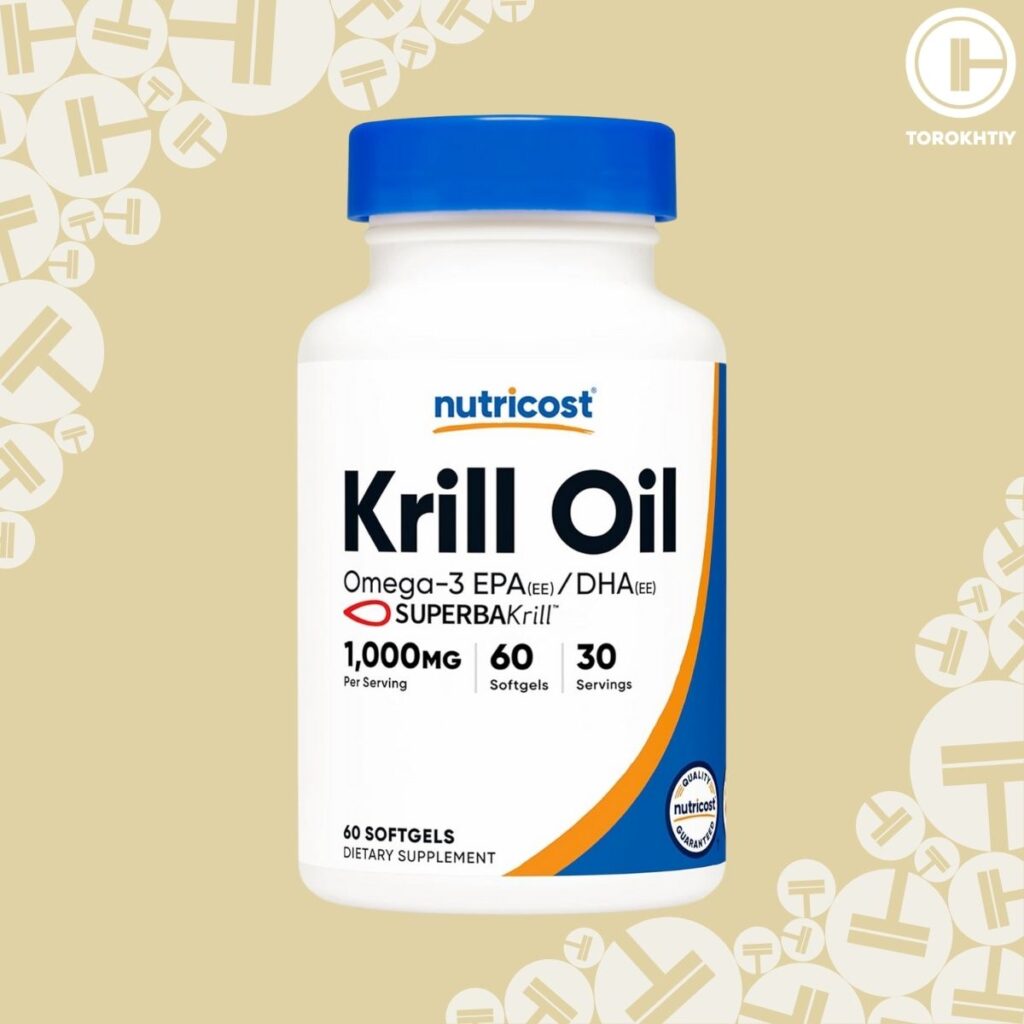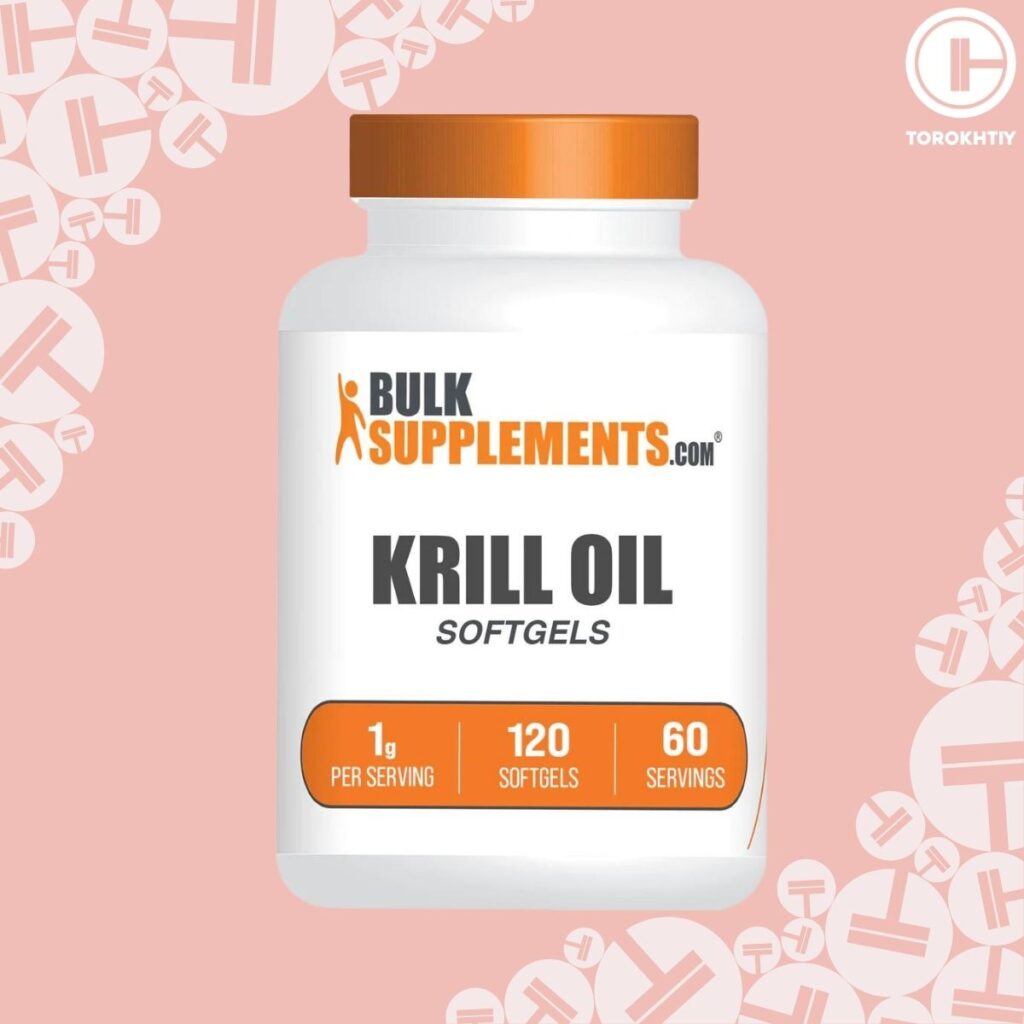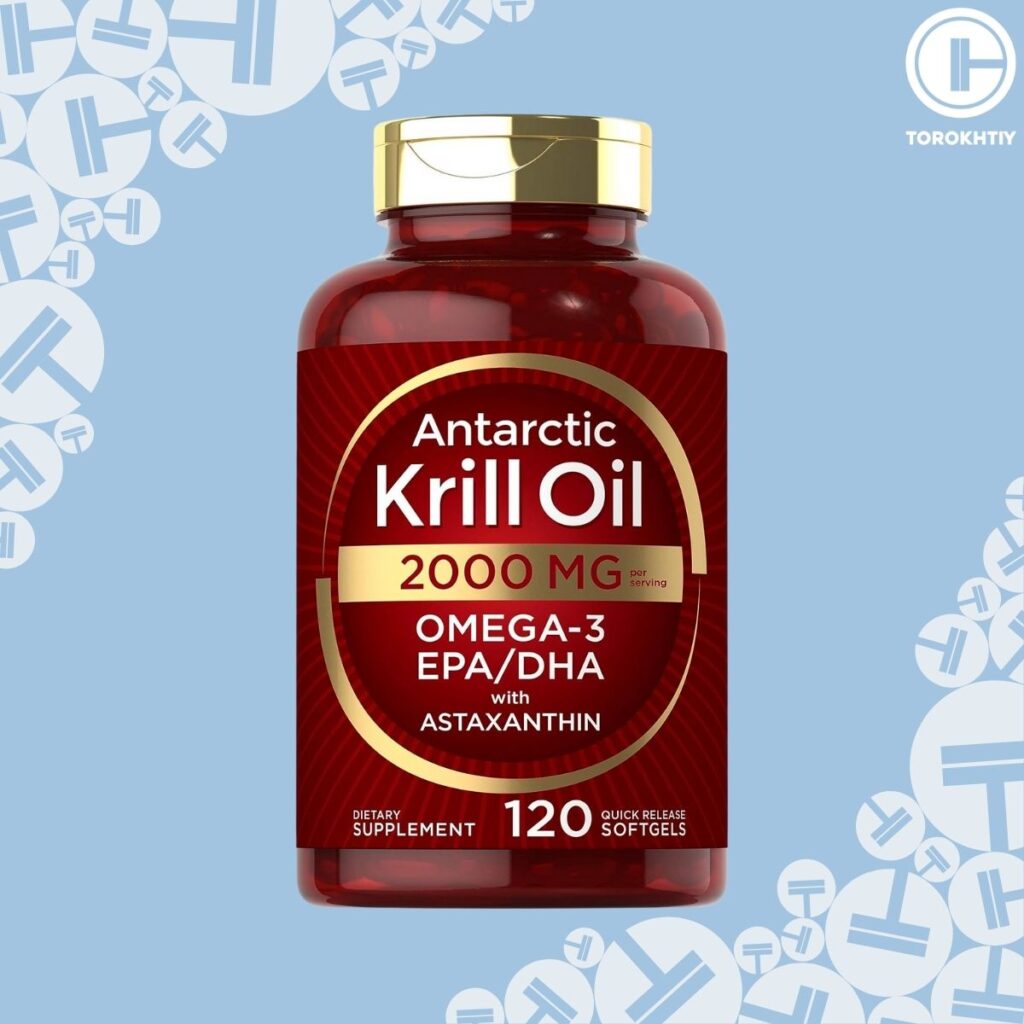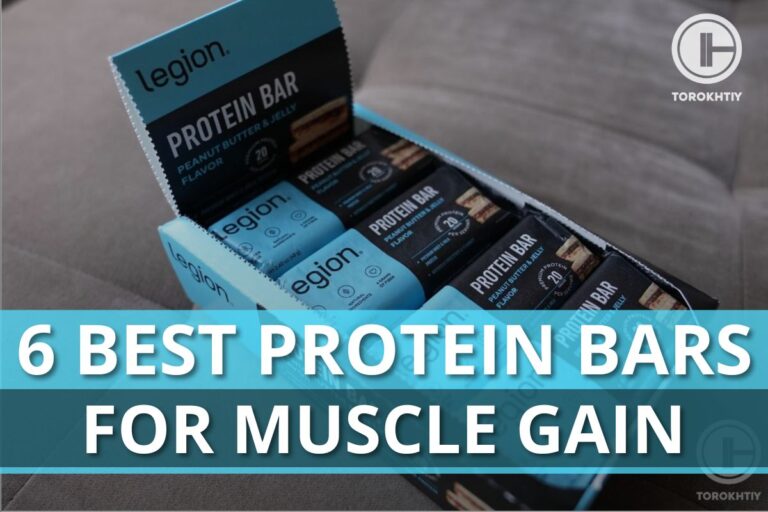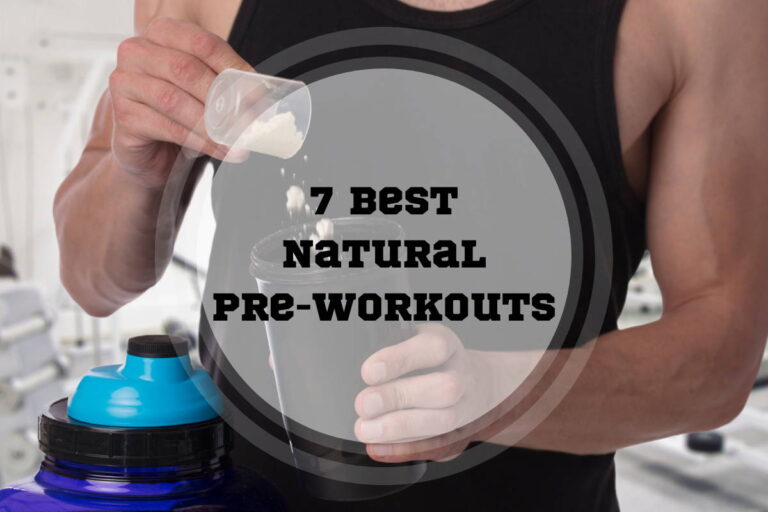8 Best Krill Oil Supplements in 2026
Looking to implement krill oil into your supplement stack, but don’t know which product to buy?
We’ve got you covered with the best krill oil supplements available today. If you’re unfamiliar with the benefits of krill oil, it is one of the easiest ways to get the Omega-3 fatty acids EPA and DHA. These are very helpful to prevent heart disease and stroke, as well as playing a role in helping control diseases such as lupus and eczema.
If you’re looking to incorporate more omega-3s in your diet, then krill oil is a great place to start! Let’s take a look at some of the best krill oil brands available.
In a hurry?
In a hurry and can’t keep reading? How about you check out the NOW Foods Neptune Krill.
NOW Foods Neptune Krill provides an impressive amount of EPA and DHA in each softgel, ensuring high-quality krill oil for optimal supplementation without the need to take multiple pills.
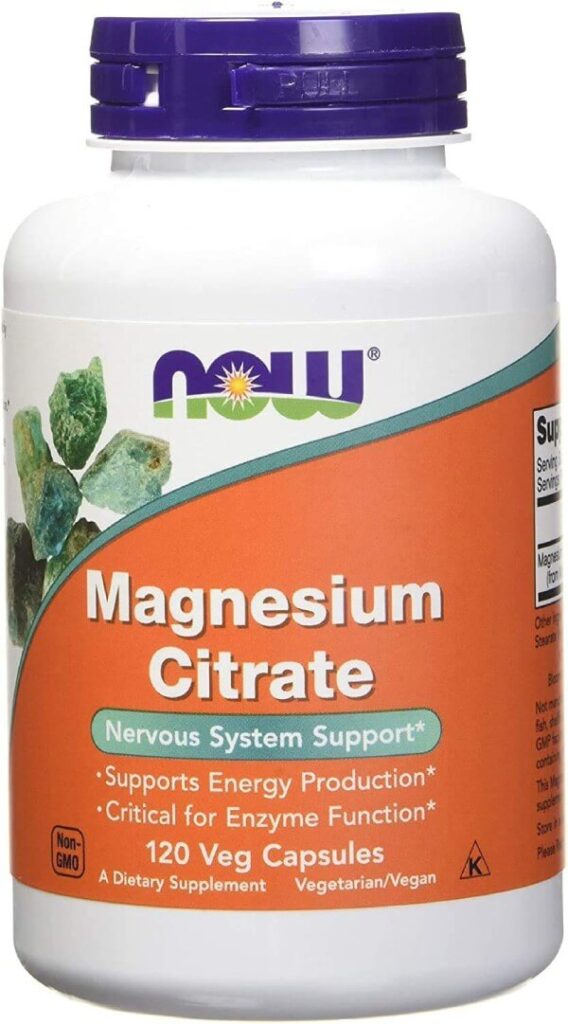
Our team of professional & certified nutritionists has tried out and examined 15 krill oil supplements in order to create this list of the 8 best krill oil supplements available.
150+ hours were invested into this research, and each product was tested based on EPA/DHA per serving, nutrition label transparency, servings per package, and value for money. Our expert team is adamant about keeping this list fresh and up-to-date as new products that may challenge the current rankings appear on the market.
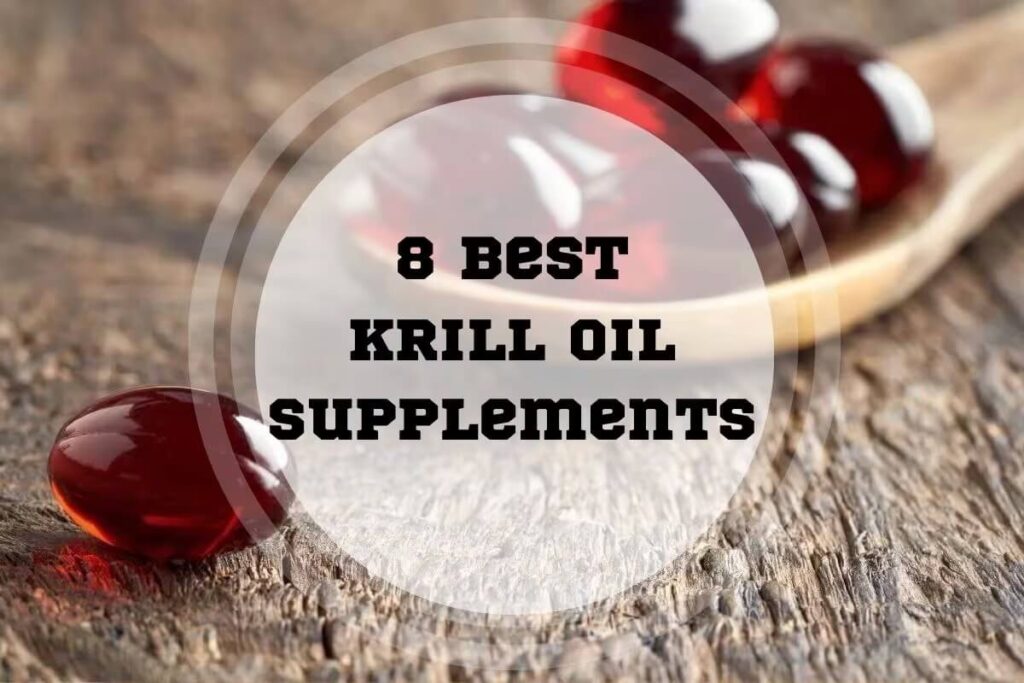
Top 8 Best Krill Oil Supplements Reviewed
- NOW Foods, Neptune Krill – Top Pick
- Sports Research Krill Oil – Runner-Up
- KRILL OIL Transparent Labs
- Onnit, Krill Oil
- Protocol for Life Balance Neptune
- Nutricost Krill Oil
- BULK SUPPLEMENTS Krill Oil
- Carlyle Nutritionals Antarctic Krill Oil
| Product | Total | EPA/DHA per Serving | Nutrition Label Transparency | Servings per Package | Price/ Quality |
|---|---|---|---|---|---|
| NOW Foods | 40 | 10 | 10 | 10 | 10 |
| Sports Research | 39 | 10 | 10 | 9 | 10 |
| Transparent Labs | 37 | 10 | 10 | 9 | 8 |
| Onnit, Krill Oil | 36 | 10 | 9 | 9 | 8 |
| Protocol for Life | 35.5 | 10 | 8.5 | 9 | 8 |
| Nutricost Krill Oil | 35 | 9 | 8 | 9 | 9 |
| Carlyle Nutritionals | 34.5 | 9.5 | 8 | 9 | 8 |
| Optimum Nutrition | 34 | 8 | 8 | 9 | 9 |
1. NOW Foods, Neptune Krill
- EPA/DHA Content: 135mg/60mg
- Package Information: 120 Softgels
- Serving Size: 1 Softgel
- Price per Serving: ~$0.51
- Company Founded: 1968
- Recommended by Athletes: Dan McDonogh, Bianca Summer Macedo, Danielle Colaprico
Starting off our list of the best high quality krill oil supplements is NOW Foods, which has been around for well over 50 years now! Having been in the supplement business for so long, you can expect NOW to have some of the highest quality products available. Their neptune krill, of course, is no exception.
NOW’s Neptune Krill contains 135mg of EPA and 60mg of DHA in each serving. This is especially impressive considering that each serving is just a single 1000mg softgel! The one downside to a single softgel serving is that the individual softgels may be more difficult to swallow for some people.
NOW’s product is made with Neptune Krill Oil (NKO), which contains phospholipid-bound-omega-3. This means the supplement includes an additional 450mg of phospholipids in each serving.
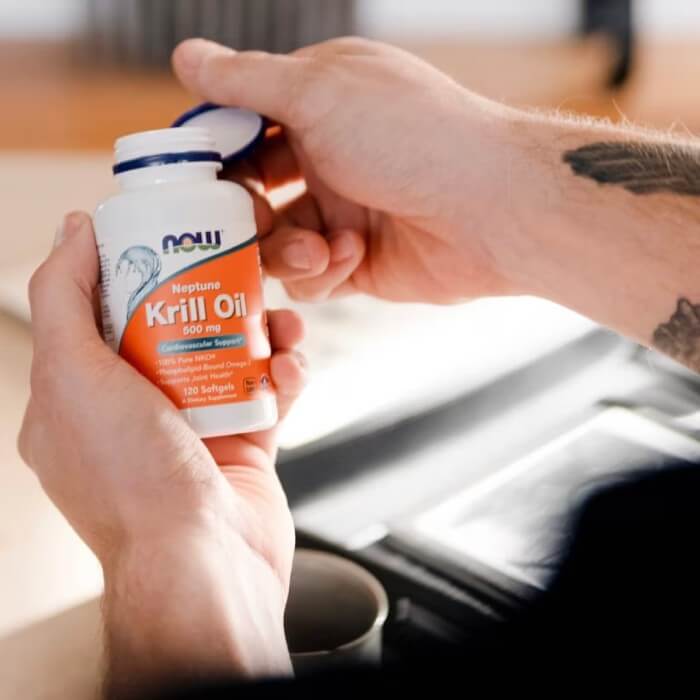
As NOW explains in their product description, phospholipid-bound EPA and DHA have very high bioavailability (and the scientific evidence supports this). NOW’s product also naturally contains very high levels of Esterified Astaxanthin at 360mcg per serving.
At only around $0.51 per serving, this is also one of the most affordable products on our list, being half as costly as some of the more expensive options out there.
Also, it’s worth noting while none of the products on our list are labeled as “organic krill oil”, NOW’s krill oil is Friend of the Sea certified, showing they are committed to the sustainability of their products.
Finally, NOW is also a proud founding partner of Vitamin Angels. If you’re unfamiliar with the organization, they are a public health nonprofit, whose mission is to help underserved populations get the nutrition they need to live their best possible lives.
NOW Foods Neptune Krill Oil is a high-quality and affordable supplement, rich in phospholipid-bound-omega-3, with added Esterified Astaxanthin for enhanced bioavailability and sustainability, making it a top choice for health-conscious consumers.
Positives:
Could be better:
2. Sports Research Krill Oil
- EPA/DHA Content: 136mg/60mg
- Package Information: 60 Softgels
- Serving Size: 1 Softgel
- Price per Serving: ~$0.53
- Company Founded: 1980
- Recommended by Athletes: Taylor Johnson, Halle Wangler, Madison Bess
Up next on our list is Sports Research’s Krill Oil Supplement. Similar to NOW, Sports Research has been around for a long time, meaning they have a solid reputation in the supplement space. Let’s see how their product stacks up compared to NOW.
Sports Research has a near identical nutritional profile to NOW’s product, making it another one of the highest quality krill oil supplements available. There is 136mg of EPA and 60mg of DHA in each serving, as well as 400mg of phospholipids and 100mcg of astaxanthin.
It also has a very similar price point at just over $0.50 per serving, making it one of the more affordable options on our list. Also similar to NOW, this is a 1000mg capsule, which is rather large!
Something else to note is that Sports Research’s product is offered in a smaller container at only 60 servings. This may be good for you if you’re looking to try out krill oil without wanting to spend too much at once. However, if you’re looking to buy in bulk this may be considered a slight downside.
Also similar to NOW, Sports Research is committed to sustainably sourcing their krill. As they state, their krill oil is completely certified as sustainable from the Marine Stewardship Council. On top of being sustainable, this is some of the best Antarctic krill oil available.
Sports Research's Krill Oil Supplement offers a high-quality and sustainable option with a similar nutritional profile to NOW's, making it a top choice for those seeking Antarctic krill oil.
Positives:
Could be better:
3. KRILL OIL Transparent Labs
- EPA/DHA Content: 120mg/55mg
- Package Information: 60 Softgels
- Serving Size: 2 Softgels
- Price per Serving: ~$1.17
- Company Founded: 2015
- Recommended by Athletes: Hafthor Bjornsson, Paul Sklar, Sean Harris
Next up on our list is Transparent Labs’ Krill Oil. Although it is not nearly as long standing as the 2 other companies we’ve covered so far, Transparent Labs has quickly become one of the most trusted and popular supplement brands on the market. How does it’s krill oil compare to the rest of the options on the market?
The first thing you should notice about this product is the price. While the last 2 products were around the $0.50 mark, Transparent Labs is significantly more expensive at well over $1 per serving. Transparent Labs is well known for its quality products, just keep in mind that they come with a rather hefty price tag.
In terms of nutrition, Transparent Labs’ product is fairly similar to the last two, although it does have slightly less of the main omega-3 fatty acids then the previous product (120mg of EPA and 54mg of DHA).
This product also contains a similar amount of phospholipids (400mg) and astaxanthin (100mcg). Something different about this product is that it contains choline, which has many health benefits including improving cognitive function, and protecting against cardiovascular disease.
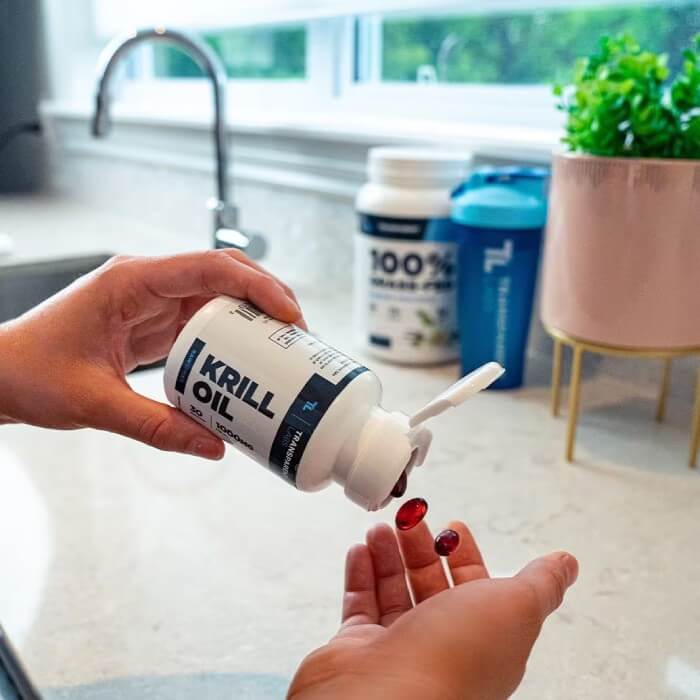
It’s worth mentioning that this product comes in a serving size of 2 softgels. Although this is a minor difference, these 500mg softgels will likely be easier to swallow than NOW and Sports Research’s 1000mg softgels.
Also, there is no claim as to whether or not their krill oil is sustainably sourced. Although this doesn’t necessarily mean it isn’t sustainably sourced, you can’t be certain if this is an important factor to you.
Finally, one great thing about Transparent Labs is that they’re committed to being open about each ingredient in their products. They provide a full breakdown of the main components of krill oil on their site with links to studies backing up all their claims.
Overall, although you’ll certainly be getting a superb product from Transparent Labs, the difference in price between the top 2 options on our list is tough to justify.
Transparent Labs' Krill Oil is a trusted and popular supplement with added choline for cognitive benefits, although its higher price compared to other options may be a consideration for some buyers who value sustainability.
Positives:
Could be better:
4. Onnit, Krill Oil
- EPA/DHA Content: 130mg/60mg
- Package Information: 60 Softgels
- Serving Size: 2 Softgels
- Price per Serving: ~$1.09
- Company Founded: 2010
- Recommended by Athletes: Eric Leija, Hannah Eden, Brian Pruett
Up next we have Krill Oil from Onnit, which is another one of the most recognizable supplement companies to have been formed in the 21st century. Let’s see how their product compares to the rest of our list.
In terms of price, Onnit is also well on the higher end of cost on our list. Although it is slightly cheaper than the Transparent Labs product, it is still over $1 per serving.
In terms of nutrition information, it is very similar to the rest of our list so far. At 130mg of EPA, 60mg of DHA, and 450mg of phospholipids, the nutritional information is fairly standard.
One noticeable difference is that Onnit’s product has a decently high astaxanthin content. Although it’s lower than NOW’s 380mcg, the 200mcg in Onnit’s product is still solid.
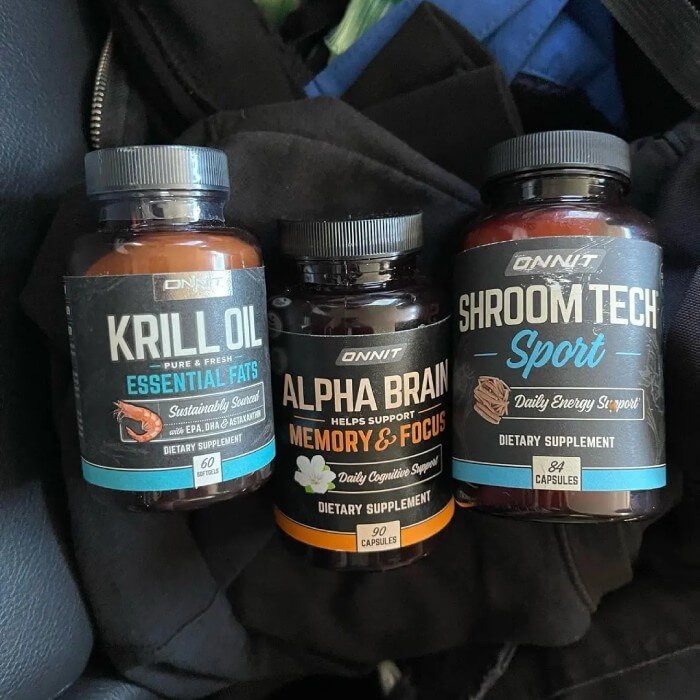
Also similar to Transparent Labs, this product comes in two 500mg softgel servings instead of 1 1000mg softgel. This will likely make it easier to consume than the large softgels.
Onnit claims that its product is sustainably sourced, although there is no direct certification that confirms this. Onnit also explains that their krill is sourced from pure Antarctic waters to ensure the highest quality product. Although this is most likely true, without a certification like MSC, it’s difficult to say how accurate this information is.
Similar to Transparent Labs, this is most definitely a solid product – just keep in mind that it comes at a fairly high price point.
Onnit's Krill Oil offers a solid option with good astaxanthin content, but its higher price compared to other options on the list and lack of direct sustainability certification may be considerations for potential buyers.
Positives:
Could be better:
5. Protocol for Life Balance Neptune
- EPA/DHA Content: 135mg/60mg
- Package Information: 60 Softgels
- Serving Size: 2 Softgels
- Price per Serving: ~$1.13
- Company Founded: 2007
- Recommended by Athletes: Francesca Fortique, Rachelle Robinett, Dr. Susan Cucchiara
Next up on our list we have a product from Protocol for Life. Although not as recognizable as some of the other companies on our list, Protocol for Life has still been delivering quality products for the better part of 2 decades. Their krill oil is no exception!
First off, at ~$1.13 per serving, this is certainly not one of the cheapest options on our list, falling right between Transparent Labs and Onnit towards the top of our list in terms of price point.
Nutrition wise, Protocol for Life is fairly similar to the rest of our list. It contains 135mg of EPA and 60mg of DHA, with 450mg of phospholipids. Where it stands out is with its high astaxanthin content. Protocol for Life has 360mcg per serving, which is tied with NOW for the highest astaxanthin content of any supplement on our list.
Similar to NOW, Protocol for Life’s product is also Friend of the Sea certified. You may have noticed that the similarities don’t end here, as this and NOW actually have identical nutritional information. The only real difference is that this product comes in a 2 softgel servings size instead of 1.
Although this is certainly a high quality product, being nearly identical to NOW’s Krill Oil, it’s unclear why Protocol for Life is worth over twice as much!
Protocol for Life's Krill Oil is a high-quality option with an impressive astaxanthin content, similar to NOW's product, but at a higher price point, which might be a consideration for potential buyers.
Positives:
Could be better:
6. Nutricost Krill Oil
- EPA/DHA Content: 110mg/60mg
- Package Information: 60 Softgels
- Serving Size: 2 Softgels
- Price per Serving: $0.73
- Company Founded: 2012
- Recommended by Athletes: Caden Edwards, Amari Whiting, Konlan James
Next we have Nutricost’s krill oil. Having been around for the last 10 years, let’s see if Nutricost delivers a product on par with its competitors.
Its price is certainly solid in terms of this list. At ~$0.73 per serving, it falls around the mid range of our list. Although it is more expensive than NOW and Sports Research, it is much cheaper than the last three options on our list as well!
In terms of nutrition, it’s fairly average compared to the rest of our list as well. Nutricost does have the lowest EPA content on our list so far, although it is only slightly lower than the competition at 110mg per serving. The DHA is solid at 60mg, as are the phospholipids at 400mg, and astaxanthin at 100mcg.
Like most of the other products on our list, the 1000mg serving is split between two 500mg softgels, making it easier to consume.
Similar to Transparent Labs’ product, Nutricost makes no assertions that their product is sustainably sourced. Once again, while it’s entirely possible that it is completely sustainable, it’s impossible to be certain without a third-party certification.
Ultimately, Nutricost is fairly standard for our list. It’s right around the mid-range in terms of price and nutritional information as well.
Nutricost's Krill Oil provides a reliable choice with a competitive mid-range price, decent nutritional content, and the convenience of split softgel servings, making it a well-rounded option on the list.
Positives:
Could be better:
7. BULK SUPPLEMENTS Krill Oil
- EPA/DHA Content: 160mg/80mg
- Package Information: 120 Softgels
- Serving Size: 2 Softgels
- Price per Serving: $1.10
- Company Founded: 2012
- Recommended by Athletes: Jovan J. Campbell, Adam Montrose, Shayne Kawika
Next up on our list is Bulk Supplements krill oil. Another company that doesn’t have the powerful name recognition of some of the other products on our list, is Bulk able to compare to the other products we’ve featured?
In terms of price, Bulk fits right in with the pricier options on our list, having a very close price point to Transparent Labs, Onnit, and Protocol for Life. So, with this being up there with the most expensive products on our list, is there anything that makes Bulk’s product stand out from the pack.
Unfortunately, Bulk’s nutritional information is fairly vague. Their nutrition label doesn’t go into the specifics regarding the EPA, DHA, phospholipid or astaxanthin content.
However, in the FAQ section of their Amazon page, they state that they have a solid EPA of 160mg and DHA of 80mg per serving (which is actually the highest for both on our list). They claim their product has 300mg of total Omega-3s per serving, so it’s difficult to say if these numbers are fully accurate.
Also, there is no indication of the phospholipid or astaxanthin content on the page, so consumers will be left guessing for these numbers as well.
Also, there is no third-party sustainability certification to ensure consumers Bulk is getting its krill in an environmentally friendly manner. Like the other products on our list without these certifications, it doesn’t necessarily mean they aren’t a sustainable company, it’s just difficult to say for sure.
Overall, while Bulk does appear to have the highest EPA and DHA content on our list, not containing the phospholipid or astaxanthin information is disappointing. Especially being one of the pricier options on our list, it’s tough to justify the high price tag here.
Bulk Supplements Krill Oil offers a higher EPA and DHA content, but lacks specific information on phospholipids and astaxanthin, making it a pricier option without clear nutritional details and sustainability certification.
Positives:
Could be better:
Closing off our list we have antarctic krill oil from Carlyle Nutritionals, which has actually been around 1971! Let’s see if their longevity in the supplement space lends itself to a high quality product.
As you may have noticed, Carlyle’s product is easily the cheapest on our entire list at only ~$0.33 per serving. However, you may be getting what you pay for if you decide to go with Carlyle’s product.
Although they also have the largest serving size of any supplement on our list (2000mg split between 2 softgels) they also somehow have the lowest EPA and DHA content by far at only 80mg and 40mg respectively. The phospholipid content is also not mentioned on the label.
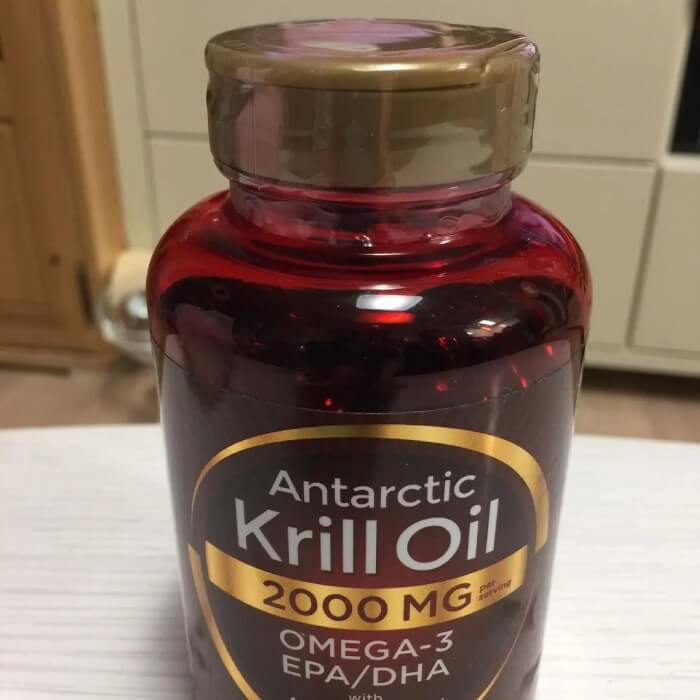
However, this product does easily have the highest astaxanthin content on our list at 600mcg per serving (although this is still less than NOW and Protocol for Life in terms of astaxanthin per 1000mg).
This product also contains no indication of how their krill was sourced beyond claiming that it’s antarctic. Overall, despite having a very attractive price point, based on all our Antarctic krill oil reviews, Carlyle Nutritionals krill has a significantly worse nutritional profile than any other product on our list.
Carlyle Nutritionals Antarctic Krill Oil may be the cheapest option, but its low EPA and DHA content and lack of phospholipid information make it less attractive than other products on our list.
Positives:
Could be better:
What Is Krill Oil?
Krill Oil is a health supplement sourced from krill, which are small crustaceans. The krill is most commonly sourced from the Antarctic ocean. As we’ll cover in more detail later on, krill oil is very similar to fish oil – although there are a few key differences. Krill oil has become increasingly popular in recent years for its purported health benefits.
These benefits are mostly related to the high omega-3 fatty acid content found in these supplements.
Omega-3’s are most commonly found in the diet through seafood, making krill oil a great way to get these valuable nutrients in if you aren’t a fan of eating fish, or if you’re concerned about getting too much mercury in your diet. Krill oil also contains high levels of astaxanthin, which has its own health benefits as well.
Omega-3’s are made up of eicosapentaenoic acid (EPA), docosahexaenoic acid (DHA), and alpha-linolenic acid (ALA). They play an important role in the human diet and in human physiology.
You may have noticed krill oil does not contain ALA. While EPA and DHA are found in fatty fish, ALA is found in vegetables such as walnuts, canola, and green vegetables like kale and spinach. ALA is partially converted into EPA and DHA by the body.

However, this conversion process is not very efficient, and only a small percentage of ALA is converted into EPA and DHA. While you can certainly get enough Omega-3s from foods rich in ALA or EPA/DHA, supplementing with something like krill oil can act as a solid boost of nutrition.
Also, Omega-3s should not be confused with Omega-6s, which are found in things like corn, and soybean oils. They have similar benefits to Omega-3s, but are much more common in western diets. Most people get adequate and maybe even excessive amounts of Omega-6s, making supplementation rarely necessary.
The average American eats 10 times as many Omega-6s as Omega-3s. Because both play a valuable role in overall health, people should seek to balance this number out by consuming more Omega-3s, and not reducing Omega-6 intake.
Ultimately, if you’re concerned about not getting enough Omega-3s in your diet, krill oil is a convenient and easy way to consume more of these valuable nutrients.

Benefits of Krill Oil Supplements?
The main benefits of krill oil supplements come from their high omega-3 and astaxanthin content, which we’ll be covering in more detail here.
✅ Benefits of Omega-3s
Omega-3s are a necessary nutrient that have many benefits regarding the overall health of the body. The main benefit related to Omega-3s is their role in cardiovascular health.
This is especially relevant for those who have a history of cardiac problems. In a study testing the benefit of Omega-3 supplementation on heart attack survivors, those supplementing with Omega-3s were less likely to have further cardiac issues, noticeably reducing their risk of cardiac-related death.
On top of heart health, Omega-3s appear to help control diseases such as lupus, eczema, and arthritis, as well as helping protect against cancer and other diseases.
✅ Benefits of Astaxanthin
Aside from Omega-3s, one of the other major ingredients found in krill oil supplements is astaxanthin. Although its benefits may not be as impressive as Omega-3s, it still provides some valuable health benefits.
Namely, astaxanthin appears to have numerous benefits regarding skin health. These include photoprotective, antioxidant, and anti-inflammatory properties.
Ultimately, without further studies it’s difficult to fully confirm the health benefits of astaxanthin, although it does appear to have some promising health benefits specifically regarding the skin.

What Is the Difference Between Fish Oil and Krill Oil?
Although fish oil and krill oil are often seen interchangeably, there are actually a few key differences which we’ll be covering here.
1. Price
First off, it’s worth noting that fish oil is significantly cheaper than krill oil. Take a look at NOW Food’s fish oil for proof! While their krill oil certainly isn’t too expensive at around ~$0.50 per serving, their fish oil is half as much at only ~$0.20 per serving! (Keep in mind that this product also comes in a 2000mg serving size, as opposed to the krill oil’s 1000mg)
Therefore, if you’re looking to save some money on an omega-3 supplement, you may be more inclined to go with fish oil.
2. EPA/DHA Content
Another factor where fish oil appears to be superior to krill oil is its EPA and DHA content. Once again using NOW’s fish oil as an example, this supplement contains 180mg of EPA and 120mg of DHA per 1000mg.
This is significantly more than their krill oil’s 135mg of EPA and 60mg of DHA. So, if you’re also looking to maximize the amount of fatty acids you’re getting in each capsule, you may want to go with fish oil over krill.
3. Greater Bioavailability
With price and EPA/DHA content taken into consideration, perhaps the main advantage krill oil has over fish oil is its better bioavailability. This is because krill oil’s EPA and DHA are largely linked to phospholipids, while fish oil’s fatty acids are bound to triglycerides. Because of this, it appears that krill oil is absorbed in the intestine easier than fish oil.
So, while fish oil does appear to have higher EPA and DHA content, krill oil has an advantage in bioavailability, which may produce similar health effects.

4. Astaxanthin Content
Finally, another key difference between fish oil and krill oil is the presence of astaxanthin. As we have discussed, this substance is found in krill oil and is not found in fish oil. Although the health benefits of this aren’t too potent, if you’re interested in astaxanthin’s benefits to skin health, then krill oil is the way to go.
5. Mercury Content
Mercury is a toxic heavy metal that can accumulate in certain fish species, especially those higher up in the food chain. Therefore, fish oil derived from large predatory fish (e.g., swordfish, shark, king mackerel) may have a higher risk of containing mercury compared to krill oil.
Krill are small, shrimp-like crustaceans that are lower in the food chain, and as a result, they tend to have lower mercury levels. Therefore, krill oil is generally considered to have a lower risk of mercury contamination compared to some fish oil products.
6. Additional Differences
There are a couple of other minor differences between krill oil and fish oil that are worth mentioning. One is that it appears like krill oil may be more effective than fish oil in reducing glucose and LDL. This means krill oil may have benefits in treating conditions like high cholesterol and type 2 diabetes.
Another interesting note is that women taking krill oil have reported fewer PMS symptoms including stress, joint pain, and bloating when compared to women taking fish oil. It’s unclear why this happens, but it does give another minor reason as to why someone may choose krill oil over fish oil!
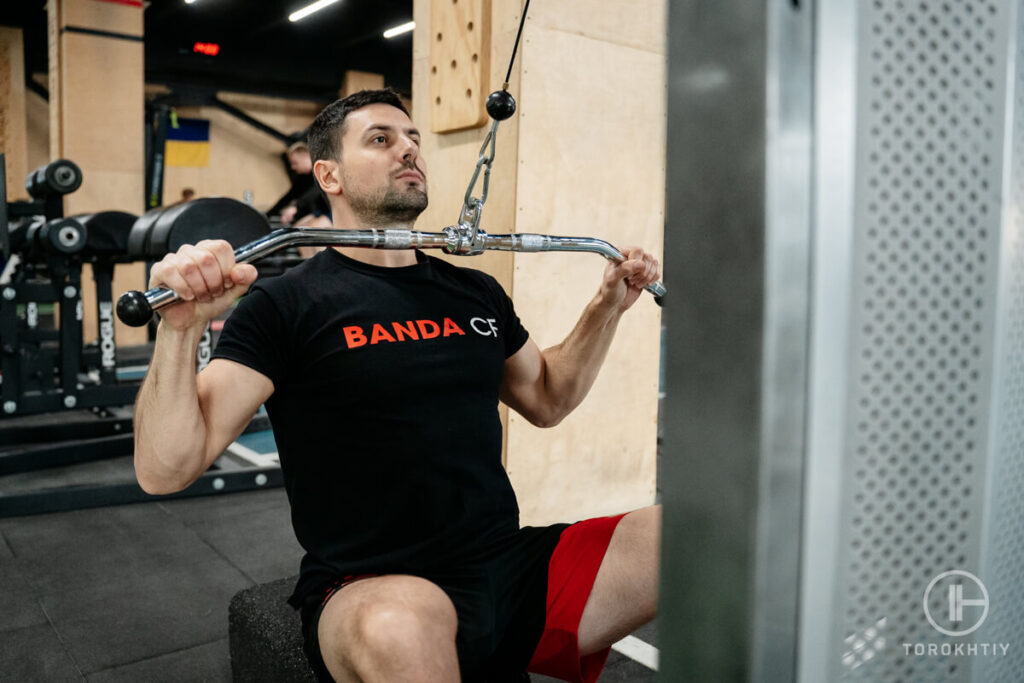
How to Find the Best Krill Oil Supplement?
There are a few key factors you’ll want to look out for when deciding on a krill oil supplement. Here they are covered in detail.
1. Nutritional Information
Perhaps the main factor you’ll want to keep in mind when looking for a krill oil supplement is what its nutritional profile looks like. This will largely come down to EPA, DHA, and astaxanthin content.
As you can see from our list, these numbers will vary slightly from product to product. You’ll want to make sure you’re getting a solid amount in each serving, and that the price of the product aligns with its nutritional information.
2. Price per Serving
Another very important factor to consider is the price of the product you’re buying. The supplements on our list vary greatly in price, ranging from ~$0.33 per serving all the way to well over $1 per serving.
A more expensive product is not always better than a cheaper option, however, sometimes with cheap products you’ll be getting what you pay for. Always be conscious of the price per serving, considering how it stacks up against similar products in terms of things like nutritional value.
Because krill oil can get expensive if you’re taking it multiple times a day, it’s important to buy a product with high value for money.

3. Servings per Package
When looking for a supplement, it’s also worth noting how many servings you’ll be getting in each container. Remember that krill oil is recommended to be taken daily, so if you’re buying a package with 30 servings, it will be gone in about a month!
If you’re just trying out krill oil, you may be more inclined to buy a smaller package so you’re not spending too much money. However, if you plan on using krill oil multiple times a day for a long time, it may make more sense to buy in bulk.
4. Softgel Size
Finally, although this is a minor factor it’s still something worth considering – be sure you’re aware of the size of the supplement’s softgel. The softgels on our list range from 500mg to 1000mg.
Just keep in mind that 1000mg softgels will be significantly larger than 500mg ones, and may be more difficult to swallow as a result. If you’re not a fan of swallowing large capsules, then picking a 500mg softgel may be more suitable for you.

How to Take Krill Oil Supplement?
All of the krill oil supplements covered on our list come in the form of softgels. To take your krill oil, simply swallow the recommended amount of softgels alongside water and food.
The main reason you’ll want to take krill oil with food is that they may very well cause indigestion if you’re taking it on an empty stomach. As per the recommendation on most krill oil supplements, we recommend taking the suggested serving size 1 to 3 times per day.
While everyone can likely benefit from some added Omega-3 supplementation, it is especially beneficial for those with a history of heart problems, or those who generally don’t eat much fatty fish.
We don’t recommend taking more than 5g of Omega-3s per day because it may use up the antioxidants in your body. Vitamin C and E can be used to compensate for this if you’re concerned. Overall, krill oil should still be safe in fairly high doses, even with this being taken into consideration.
Remember, before taking any supplement, it's a good idea to get advice from a health care provider who can assess your health status, the benefits of the supplement, and clarify dosages.

FAQ
What Should I Look for When Buying Krill Oil?
The main factors you should consider when buying fish oil are it’s nutritional value (ie. EPA, DHA, and astaxanthin) as well as the price, serving amount, and softgel size. Overall, most krill oil supplements are fairly similar, so be sure you’re aware of these minor differences.
Is Krill Oil Better Than Fish Oil?
It depends on which factors you’re considering. While fish oil is significantly cheaper than krill oil, and contains more EPA and DHA on average, krill oil is more bioavailable and contains astaxanthin.
Other than these factors, they are very similar supplements, and are both great ways to get more Omega-3s in your diet. It is ultimately up to the individual to decide which product is better for them.
Should I Take Krill Oil Everyday?
Yes! There’s absolutely no harm in taking krill oil everyday. To ensure you’re getting the recommended daily value of Omega-3s in your diet, we recommend taking krill oil anywhere from 1 to 3 times daily.
How Many MG of Krill Oil Is Best?
Most of the krill oil supplements on our list come in 1000mg servings. This serving size will contain a solid dose of Omega-3s and can be taken anywhere from 1 to 3 times a day. How much krill oil you take per day may depend on several factors including body weight, and how much Omega-3 rich food you eat.
Is It Better to Take Krill Oil in the Morning or Evening?
What time you take krill oil shouldn’t make a major difference in the supplement’s positive benefits! With many supplements recommending you take 1-3 servings daily, there’s no harm in taking krill oil in both the morning and the evening.
Does Krill Oil Contain Omega-3s or Omega-6s?
Krill oil is rich in Omega-3s, and contains no Omega-6s. Although both are beneficial in keeping a healthy heart, people tend to eat far more Omega-6s than Omega-3s. This is why supplementing with something rich in Omega-3s like krill oil is beneficial for overall health.
Why Trust Us?
With over 20 years in Olympic Weightlifting, our team does its best to provide the audience with ultimate support and meet the needs and requirements of advanced athletes and professional lifters, as well as people who strive to open new opportunities and develop their physical capabilities with us.
All products we select are primarily approved and tested by the Olympic Weightlifting Champion Oleksii Torokhtiy. Under his guidance, we provide honest and reasonable assessments of the products we review by checking their characteristics, packaging, design, comfort and durability features, and general product rating. We select products from only high-quality and trusted sports brands, thus vouching for their quality.
The product testing process is described in more detail here
Author: Oleksandr Maksymenko
Certified Sports Nutritionist,
MSc Sports Dietetics
Specializing in: Weight management, Fitness / Sports nutrition
Oleksandr is a professional fitness nutritionist certified by the Fitness Professional Association (FPA). He follows the principles of evidence-based dietetics and fosters a healthy relationship with food in his clients, ensuring there are no strict prohibitions on their favorite foods or frequent lapses. His primary goal is not only to achieve results for you but also to sustain them over the long term, all while enjoying tasty and delicious food.
If you have any questions/suggestions/any other inquiries considering product reviews, you can reach out to us via email – [email protected]

